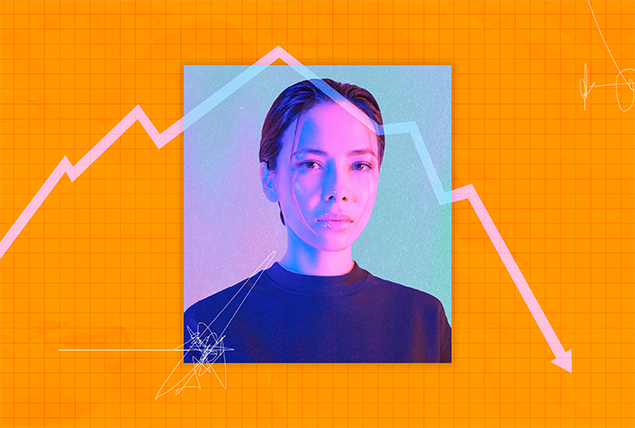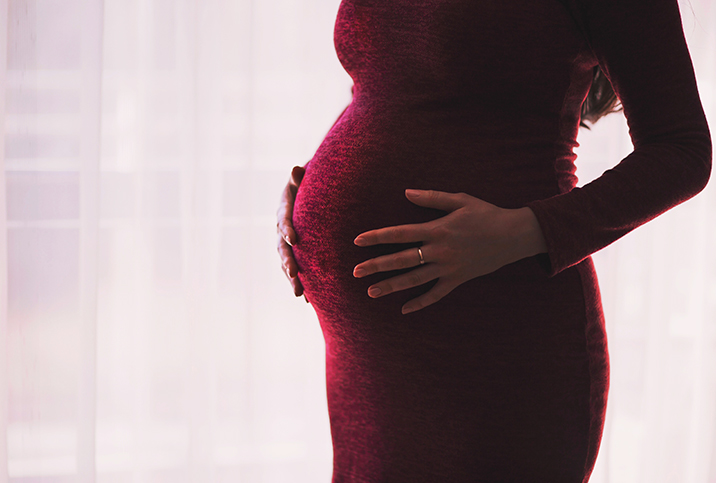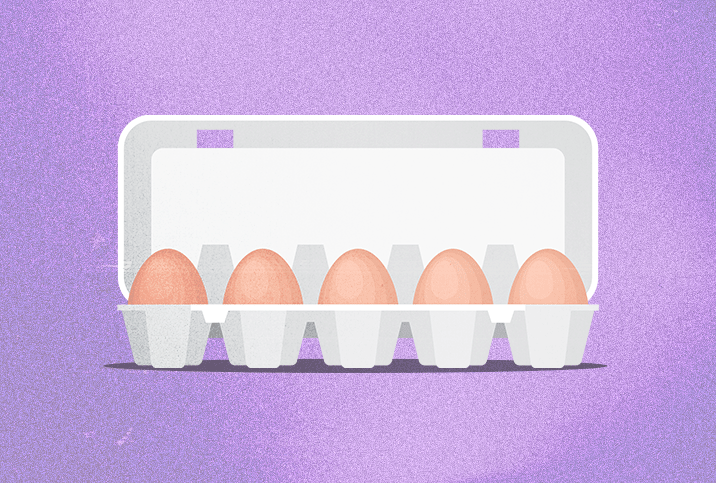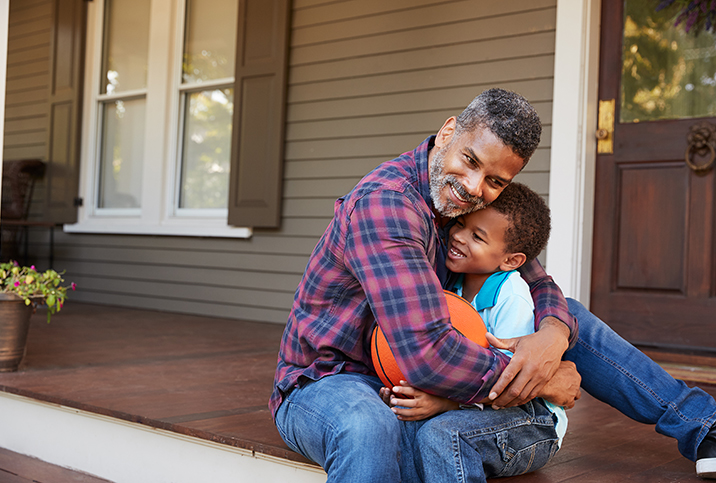How Hard Is It to Get Pregnant After 35?

You've heard about your "biological clock" and may even feel as if it's ticking. So what happens when you're already 35 and you want a baby? Here's the science behind the answer.
Natural conception rates drop with aging
If 48-year-old, two-time Oscar winner Hilary Swank can have twins, but 53-year-old Jennifer Aniston had a multiyear fertility struggle and regretted not knowing about freezing her eggs, what does it mean for you?
Statistically speaking, your monthly conception rates drop with age, with 30-year-olds having an estimated 15 percent to 20 percent chance of conceiving and 35-year-olds having a 12 percent to 15 percent chance of conceiving.
Once you hit 40, your chance drops to about 5 percent to 10 percent. Your chances of conceiving can plummet if you do not conceive within the first few months of trying, said Janet Choi, M.D., chief medical officer of Progyny, a fertility and family building benefits management company based in New York City.
"So if a woman is 35 or older and has not conceived [within] three to six months of trying, she should not panic but should consider getting a fertility evaluation while she continues to try naturally, as I have had patients happily conceive naturally while they're getting evaluated for infertility," Choi advised.
One in 4 women between the ages of 35 and 39 experience infertility. By around 39, infertility rates increase to 1 in 2 women. Infertility at the age of 35 or later is defined as unsuccessfully attempting to conceive for six months or longer, said Shvetha Murthy Zarek, M.D., a fellow of the American Congress of Obstetricians and Gynecologists who practices at Oma Fertility in St. Louis.
Risks of pregnancy and birth after 35
If you get pregnant after age 35, there is an increased risk of gestational diabetes, preeclampsia and labor issues, such as a required cesarean section. Additionally, there is an increased risk of genetic errors such as trisomy 21 (Down syndrome) as well as other chromosomal errors, which do become more common with the aging of the mother, Choi said.
"Nature frequently deals with these chromosomally imbalanced pregnancies via early miscarriages, which is why miscarriage rates increase with normal aging as well," Choi added.
People who get pregnant after 35 are five times more likely to get preeclampsia or gestational diabetes or have a miscarriage.
These births are two times more likely to be premature or stillbirth and three times more likely to require a cesarean section, Zarek cautioned.
Chromosomal disorders
The risk of having a baby with a chromosome abnormality increases with maternal age. The risk is about 1 in 1,250 for a woman who conceives at age 25, but rises to about 1 in 100 for a woman who conceives at age 40, according to Stanford Medicine Children's Health. There is a 1 in 365 chance at age 35. Once you hit 45, the chance skyrockets even further to 1 in 30, Zarek explained. By age 44, 90 percent of women's eggs are chromosomally abnormal, according to Advanced Fertility Center of Chicago.
Twins are more likely after 35
The number of twin births is on the rise. The chance of twins or multiple births increases with age. In 2009, 1 in 30 babies born in the United States was a twin, compared with 1 in 53 babies reported in 1980, according to the National Center for Health Statistics.
The jump in twins is attributed to the rise in previous twin births, a family history of twins and maternal age.
"Some of this is because older women are more likely to need [or] seek fertility help, and some fertility treatments can raise the risk of twins," Choi said. "Naturally occurring hormonal changes can sometimes cause a woman to ovulate more than one egg at a time, which can sometimes result in twins and, rarely, higher order multiples."
Reproductive medicine doesn't always work
One misconception about getting pregnant after 35 is that reproductive medicines can help anyone conceive. Infertility stems from many causes. While treatment such as medication or surgery can help, it isn't a guarantee.
But you can improve your chances of conception by maintaining a healthy lifestyle, including eating a Mediterranean diet, keeping a healthy body mass index (BMI), avoiding smoking and drugs, limiting alcohol use (and stopping with pregnancy) and decreasing your caffeine intake, as some studies suggest high caffeine consumption can increase the risk of a miscarriage, Choi suggested.
Other healthy choices that can increase your chances of conceiving are getting adequate vitamin D, as sun exposure is important, checking your thyroid level, which can affect fertility, and taking daily prenatal vitamins, Zarek advised.
Another key part of staying healthy is ensuring your vaccinations are up to date, especially vaccines against chickenpox, measles and rubella, Choi warned.
"If you're not immunized and become infected during pregnancy, these can greatly increase the risk for pregnancy complications, such as early and late miscarriages and congenital anomalies," Choi said. "I strongly urge all my patients to get their flu and COVID-19 vaccines updated to help minimize health complications from these infections during pregnancy."
What happens to my eggs as I age?
Contrary to popular belief, 35 isn't the exact age your eggs and fertility decrease.
"Fertility and egg quality are generally well maintained until about 38 years of age," Zarek said. "The odds are on your side for a natural conception if you are 38 years and younger. After 38 years, egg quality and sometimes egg quantity decrease rapidly, thus, requiring more fertility treatment interventions, [such as] in vitro fertilization."
Most fertility clinics recommend treatments using your own eggs until you're about 42 years old, Zarek said.
For women ages 35 to 39, their chance of naturally conceiving is half as likely as it is for women ages 19 to 26, one study suggests.
If you haven't become pregnant after six months of trying, it's recommended you see a reproductive endocrinologist or infertility physician and/or have your egg count evaluated, Zarek said.
Suppose you're on the fence about wanting to get pregnant. In that case, you should explore fertility preservation, such as an egg or embryo freezing cycle, to essentially "bank" against possible future fertility issues.
"Though neither guarantees a future pregnancy, they are an option should someone encounter later-age fertility problems, and some employers' insurance plans will even help to cover the process," Choi suggested.
The bottom line
The decision on when to try to have a baby is unique to each individual. But as a person ages, so do the risks and difficulties associated with conceiving and carrying a baby to term. Undoubtedly, your experience will depend on your health and history. Speak with your doctor to learn more.
Need a new doctor? Access the Giddy Telehealth online portal. Browse hundreds of healthcare professionals to find the right one for you.


















